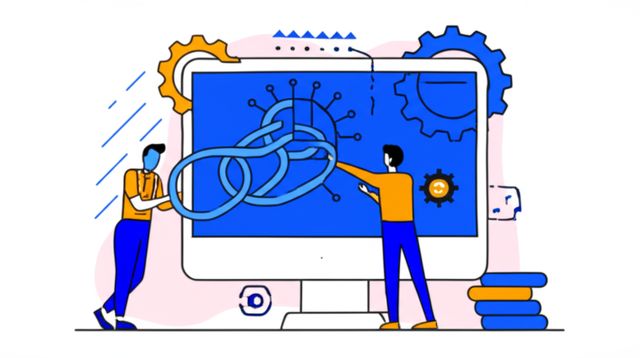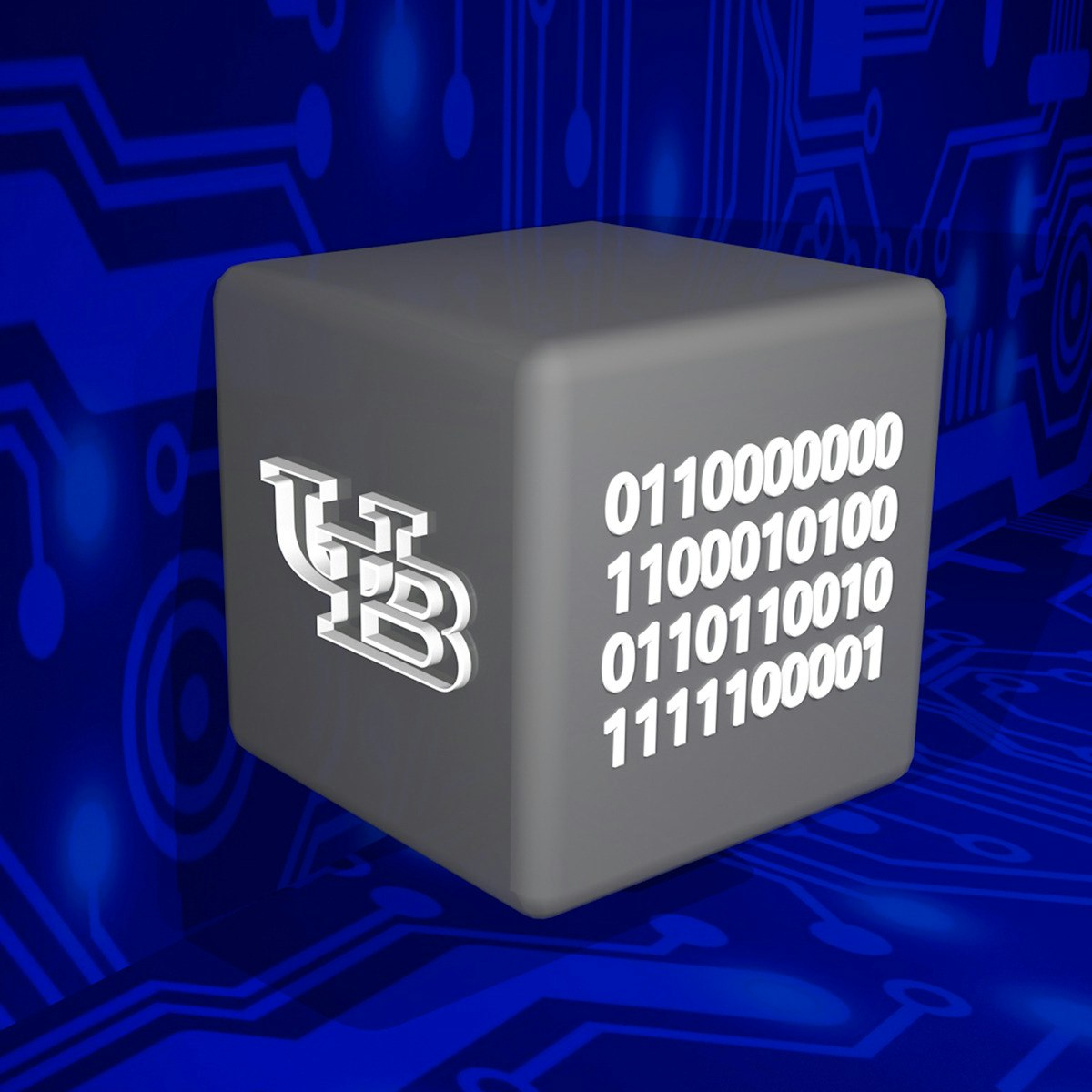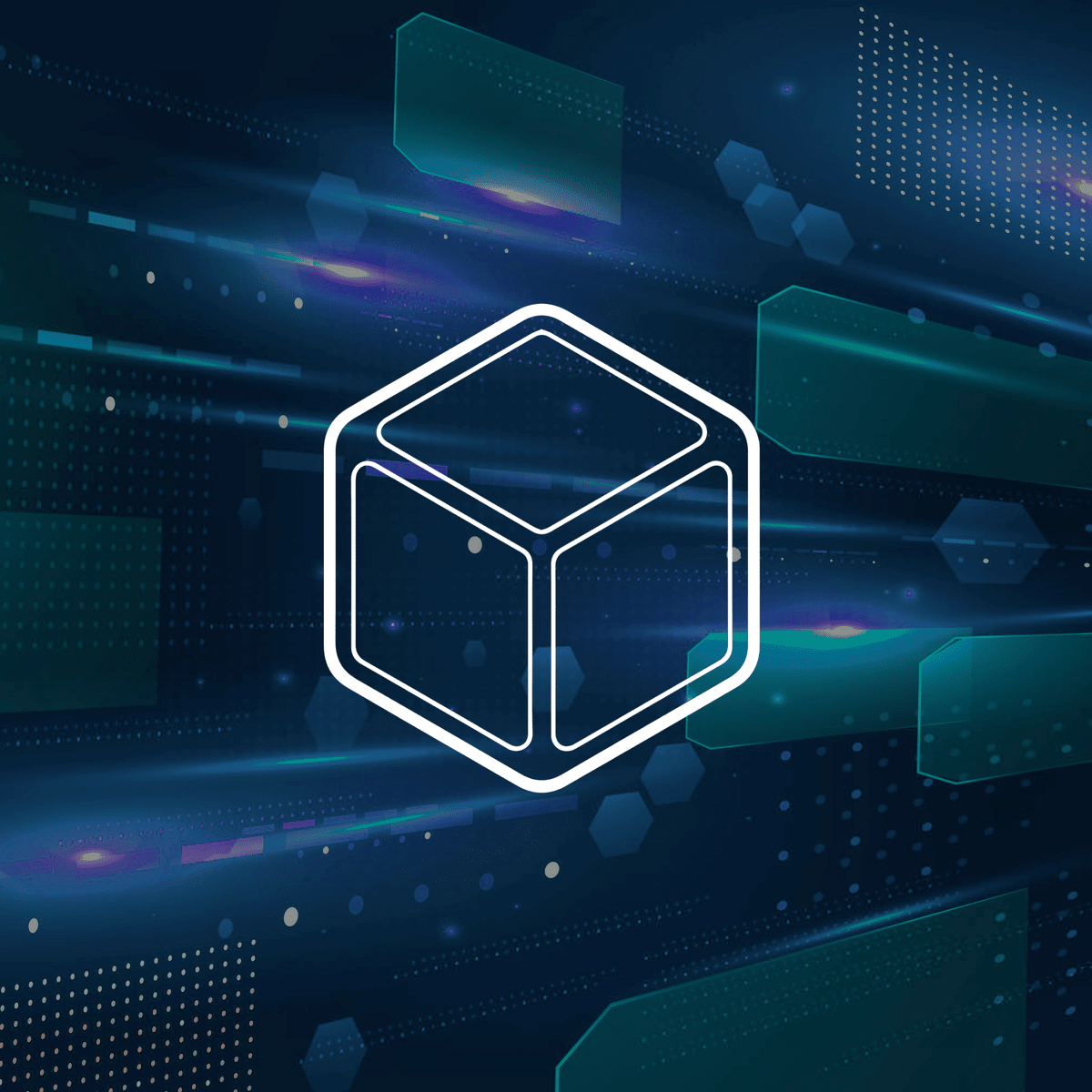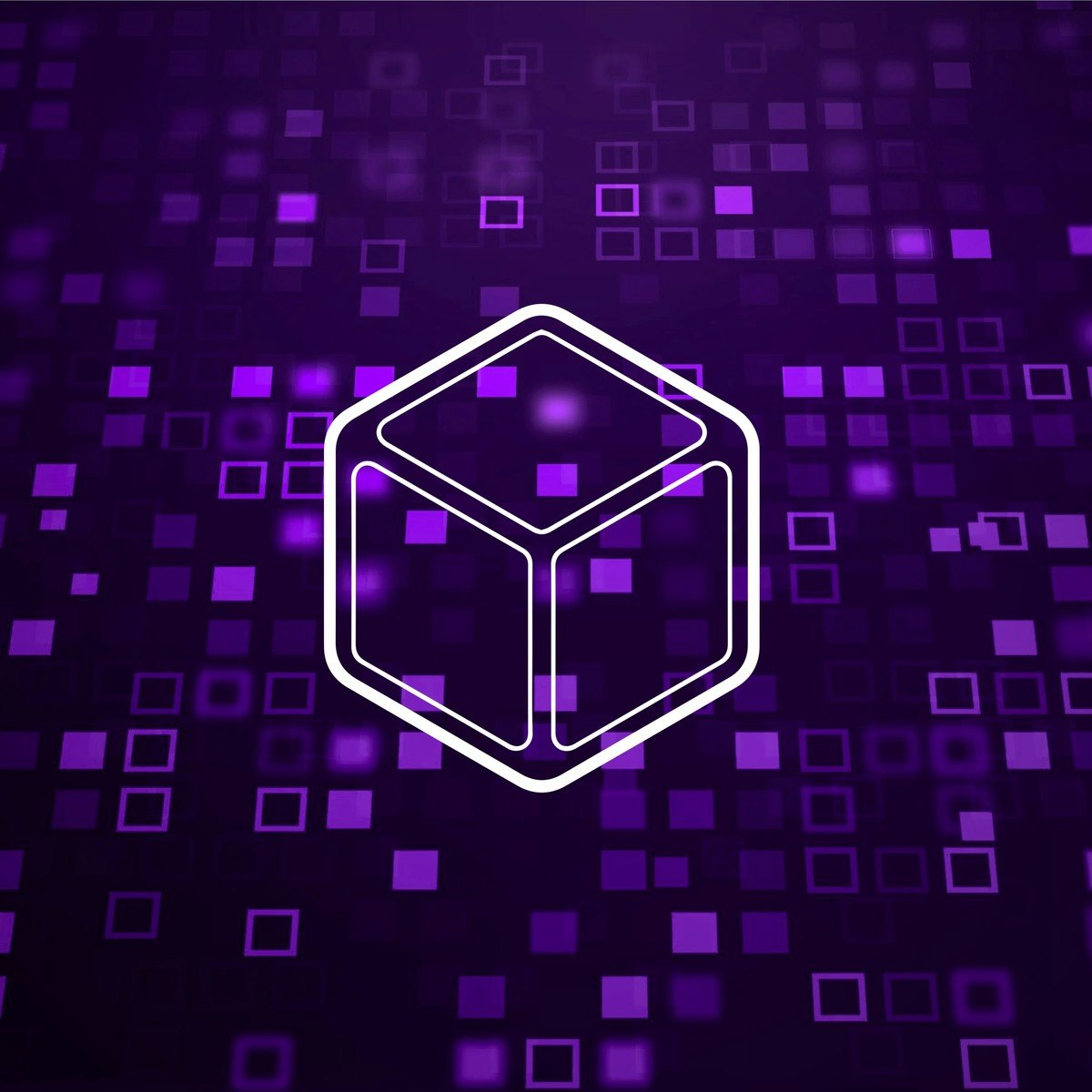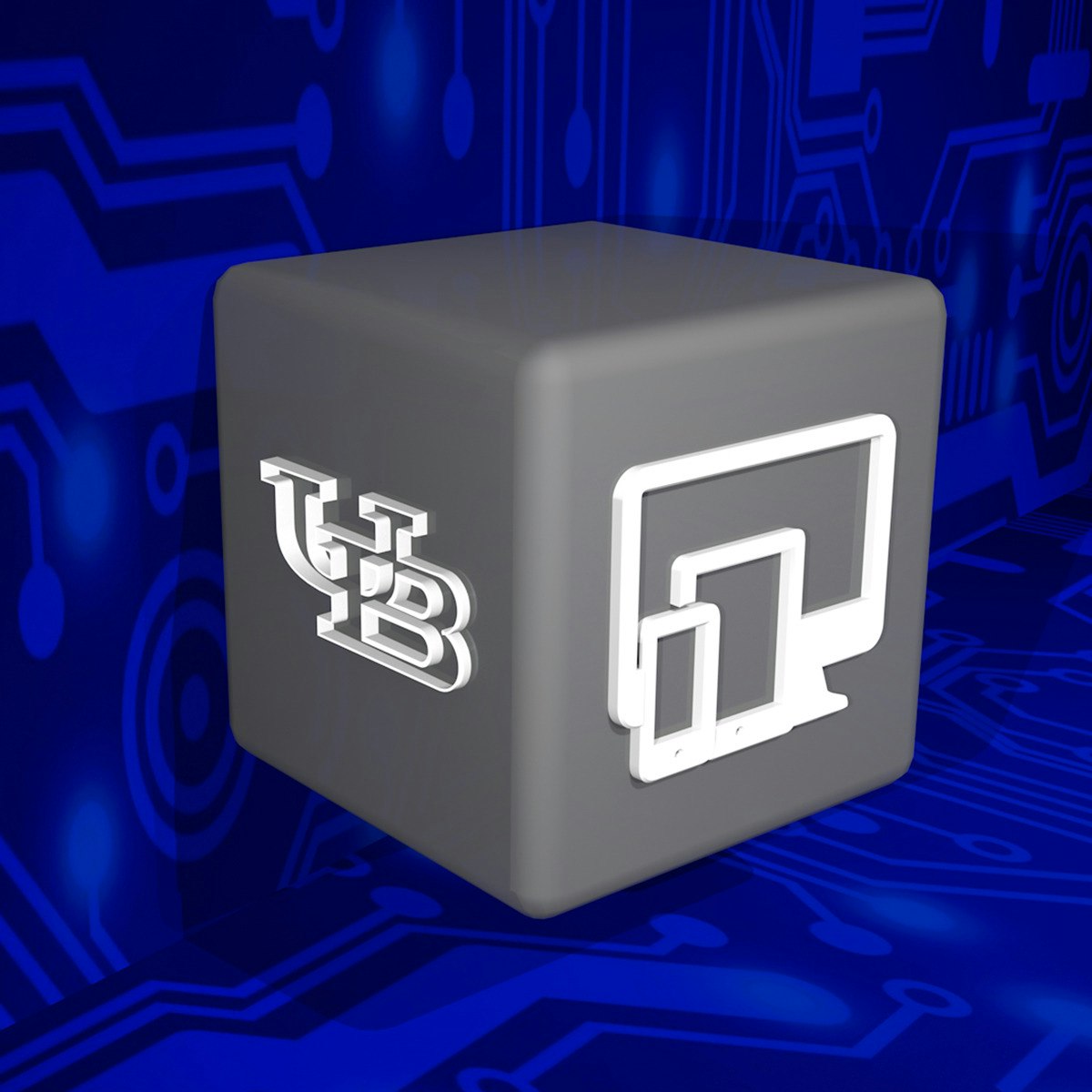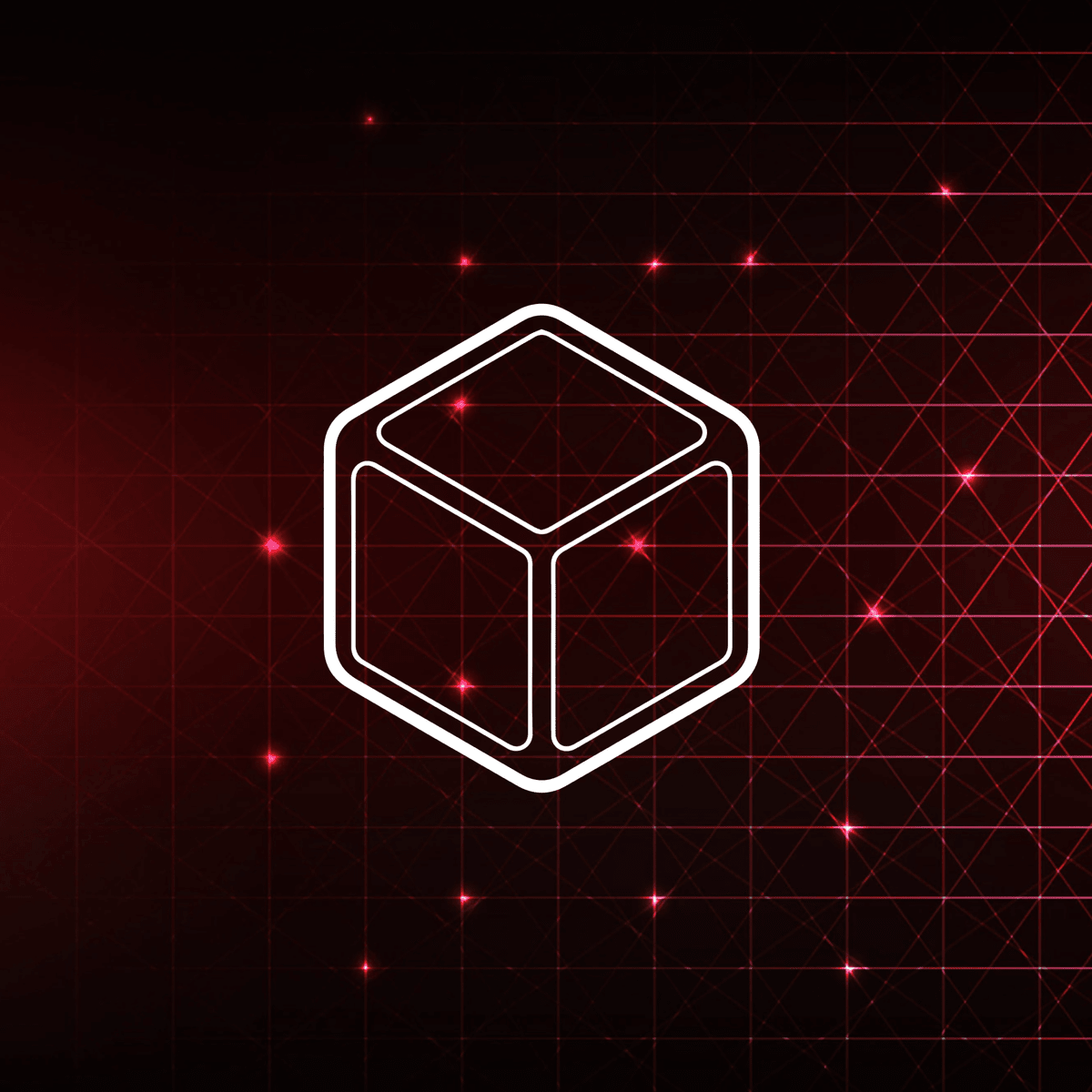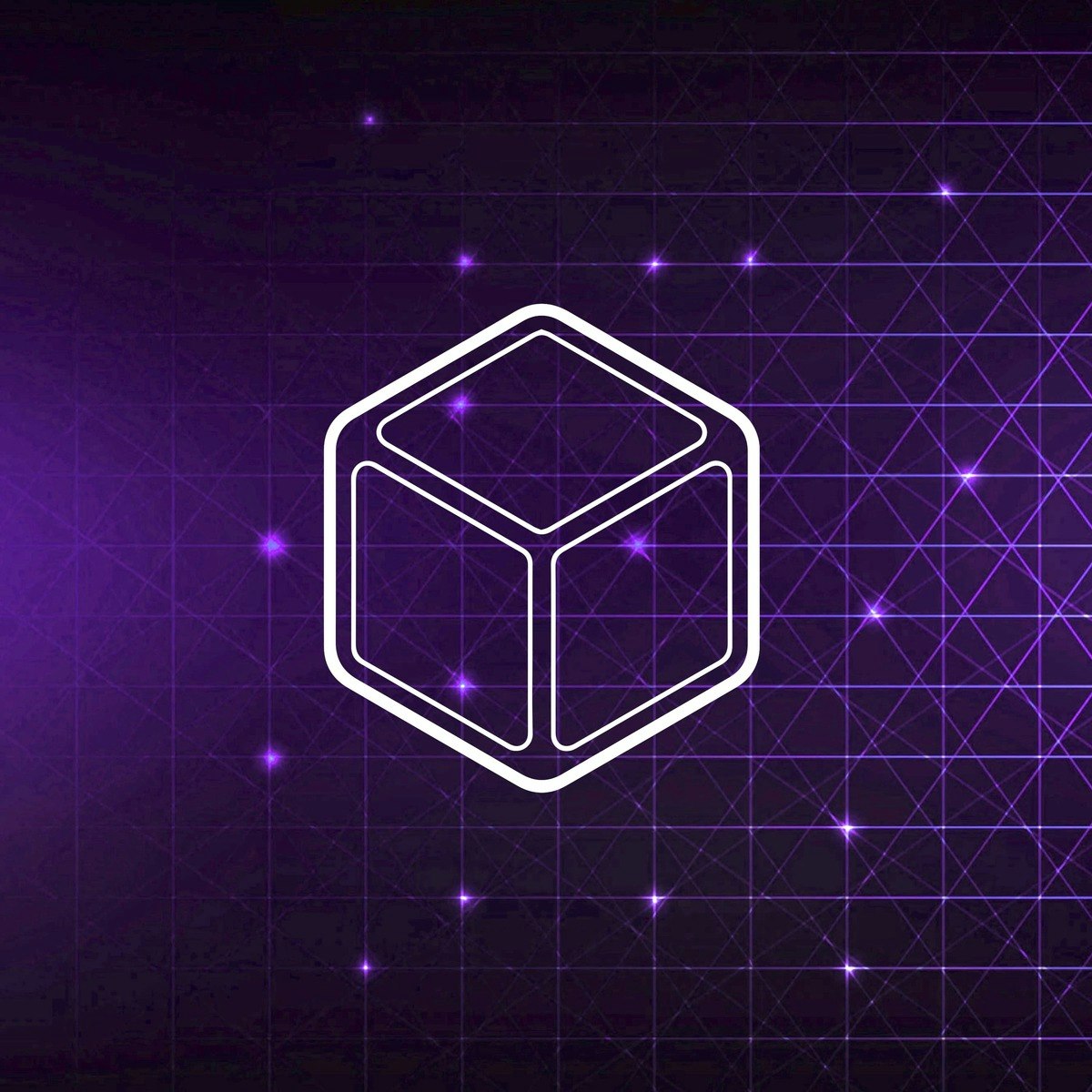Blockchain Consultant
Navigating the Future: A Career as a Blockchain Consultant
A Blockchain Consultant is a professional who advises organizations on how to leverage blockchain technology to improve their operations, enhance security, and unlock new business opportunities. They bridge the gap between the complex, technical world of blockchain and the practical needs of businesses. This role involves understanding a client's challenges, designing blockchain-based solutions, and guiding them through the implementation process. The field is dynamic and continually evolving, offering intellectually stimulating work for those fascinated by the intersection of technology and business strategy.
The excitement of being a Blockchain Consultant lies in working at the forefront of a transformative technology. Consultants often tackle diverse challenges across various industries, from finance and healthcare to supply chain management and entertainment. They get to be creative problem-solvers, architecting innovative solutions that can fundamentally change how organizations operate. Furthermore, the high demand for blockchain expertise often translates into competitive compensation and significant career growth opportunities.
Core Concepts of Blockchain Technology
To excel as a Blockchain Consultant, a strong understanding of the foundational principles of blockchain is paramount. This technology, while complex, can be broken down into several key concepts that underpin its functionality and value proposition. These concepts are not just technical jargon; they represent the core innovations that enable blockchain to offer unique solutions to long-standing business challenges.
These introductory courses provide a solid overview of what blockchain is and how it functions, which is essential knowledge for anyone considering a career in this field.
For a deeper dive into the mechanics and potential of blockchain, these books offer comprehensive insights.
Decentralization and Distributed Ledger Fundamentals
At its heart, blockchain is a type of distributed ledger technology (DLT). Imagine a traditional ledger, like a record book for transactions, kept by a single, central authority (like a bank). In a decentralized system, this ledger isn't stored in one place; instead, copies are distributed across numerous computers in a network. This decentralization means no single entity has complete control, which can enhance transparency and resilience.
When a new transaction occurs, it's broadcast to this network. Each participant (or node) in the network validates the transaction based on a set of agreed-upon rules. Once validated, the transaction is bundled with other transactions into a "block," which is then added to the existing "chain" of blocks in chronological order. This chain is what forms the blockchain.
This distributed nature has profound implications. It can reduce the reliance on intermediaries, potentially lowering costs and increasing efficiency. Moreover, because the ledger is replicated across many locations, it's much harder for a single point of failure to bring down the system or for a malicious actor to tamper with the records.
Cryptographic Principles in Blockchain
Cryptography is the backbone of security in blockchain technology. Several cryptographic techniques work together to ensure the integrity, authenticity, and confidentiality of the data stored on the blockchain. One of the most fundamental is hashing. A cryptographic hash function takes an input (like the data in a block) and produces a fixed-size string of characters, known as a hash. This hash is unique to the input data; even a tiny change in the input will result in a completely different hash.
Each block in a blockchain contains the hash of the previous block, creating a secure link between them. This is what makes the chain "tamper-evident." If someone tries to alter data in a past block, its hash would change. This change would then invalidate the hash stored in the subsequent block, and so on, making any unauthorized modification immediately apparent to the rest of the network.
Digital signatures, another cryptographic tool, are used to verify the authenticity of transactions. Based on public-key cryptography, users have a private key (kept secret) and a public key (shared with others). To authorize a transaction, a user signs it with their private key. Others can then use the sender's public key to verify that the signature is genuine and that the transaction hasn't been altered since it was signed.
Understanding these security underpinnings is crucial for a consultant who needs to explain the trustworthiness of blockchain solutions.
Public vs. Private Blockchain Architectures
Blockchains can be broadly categorized into public, private, and consortium (or federated) architectures, each with different characteristics regarding accessibility and control. A public blockchain, like Bitcoin or Ethereum, is permissionless. This means anyone can join the network, participate in validating transactions (e.g., through mining or staking), and view the ledger. They are highly transparent and censorship-resistant but can sometimes suffer from slower transaction speeds and higher costs due to the large number of participants.
Private blockchains, on the other hand, are permissioned. A central organization controls who can participate in the network. This makes them suitable for enterprises that need to maintain control over their data and processes while still benefiting from blockchain's immutability and efficiency. Transaction speeds are generally faster, and scalability can be better managed than in public blockchains. However, they are less decentralized than public networks.
Consortium blockchains are a hybrid model, governed by a group of organizations rather than a single entity. They offer a balance between the openness of public blockchains and the control of private ones, making them suitable for collaborations between multiple companies within an industry. A Blockchain Consultant must be able to assess a client's specific needs regarding control, transparency, and performance to recommend the most appropriate architecture.
Day-to-Day Responsibilities
The daily life of a Blockchain Consultant is multifaceted, often involving a blend of technical analysis, strategic thinking, client communication, and project management. While the specifics can vary based on the project and the consultant's specialization, certain core responsibilities are common across the profession. The overarching goal is to help clients understand and implement blockchain solutions effectively to solve business problems or create new value.
Consultants spend a significant amount of time interacting with clients to grasp their business objectives, operational pain points, and existing technological landscape. This understanding is crucial for identifying opportunities where blockchain can provide a meaningful advantage. They then translate these needs into functional and technical requirements for a potential blockchain solution.
Client Needs Assessment and Solution Design
A primary responsibility is to thoroughly assess a client's needs. This involves conducting workshops, interviews with stakeholders, and analyzing existing processes and systems. The consultant must dig deep to understand the core problems the client is trying to solve or the opportunities they wish to pursue. Is it about improving supply chain transparency, creating a more secure way to manage digital identities, or streamlining financial settlements?
Once the needs are clearly defined, the consultant moves into solution design. This involves conceptualizing how blockchain technology can address the identified challenges. This phase requires creativity and a strong understanding of what blockchain can and cannot do. The consultant will outline the proposed blockchain architecture, choose appropriate consensus mechanisms, define data structures, and consider how smart contracts might be used to automate processes. The output of this phase is typically a detailed proposal or a blueprint for the blockchain solution.
This requires not just technical knowledge but also strong business acumen to ensure the proposed solution aligns with the client's overall strategy and provides a clear return on investment.
Blockchain Platform Selection Criteria
After designing a conceptual solution, a crucial step is selecting the right blockchain platform. There is a wide array of platforms available, each with its strengths, weaknesses, and specific use cases. These include public platforms like Ethereum, permissioned enterprise platforms like Hyperledger Fabric or Corda, and specialized blockchains for particular industries.
The consultant must evaluate these platforms against a set of criteria derived from the client's requirements. Key considerations include the type of blockchain (public, private, consortium), the consensus mechanism and its implications for security and energy consumption, transaction speed and scalability, smart contract capabilities and supported programming languages, security features, governance model, and the maturity and community support of the platform.
Cost of implementation and ongoing maintenance is another critical factor. The consultant will need to weigh these technical and business factors to recommend the platform that best fits the client's specific context and goals. This decision has long-term implications, so thorough due diligence is essential.
Integration with Existing Enterprise Systems
Few blockchain solutions operate in a vacuum. In most enterprise scenarios, new blockchain systems need to integrate with existing legacy systems, such as Enterprise Resource Planning (ERP) software, Customer Relationship Management (CRM) systems, databases, and other IT infrastructure. This integration is often one of the most challenging aspects of a blockchain implementation project.
The Blockchain Consultant plays a key role in planning and overseeing this integration. This involves understanding the data flows between the blockchain and existing systems, defining APIs (Application Programming Interfaces) for communication, and addressing potential compatibility issues. The consultant must also consider data synchronization, security protocols for data exchange, and how the blockchain will complement or augment the functionality of current systems.
Effective integration is vital for a seamless transition and for maximizing the value of the blockchain solution. It requires careful planning, collaboration between the client's IT team and the blockchain development team, and robust testing to ensure that all components work together harmoniously. Challenges like skillset shortages and the complexity of reorienting business processes also need to be managed.
Academic Preparation Pathways
While the path to becoming a Blockchain Consultant can be varied, a strong academic foundation in relevant fields provides a significant advantage. The interdisciplinary nature of blockchain technology means that knowledge from computer science, cryptography, business, and even law can be beneficial. Universities and academic institutions are increasingly recognizing the demand for blockchain expertise and are developing specialized programs and research opportunities.
For those still in their academic journey or considering further education, focusing on areas that build core technical and analytical skills is a wise strategy. Even if a direct "Blockchain Consultant" degree isn't available, several established disciplines offer the necessary building blocks for a successful career in this field. OpenCourser provides an extensive catalog of computer science courses that can serve as a starting point.
Relevant Undergraduate Majors (Computer Science, Cryptography)
A Bachelor's degree in Computer Science is a common and highly relevant starting point for aspiring Blockchain Consultants. This major typically provides a strong foundation in programming, data structures, algorithms, database management, and network security – all of which are crucial for understanding and working with blockchain technology. Courses in software engineering and systems architecture are also particularly valuable.
While dedicated undergraduate majors in Cryptography are less common, computer science programs often offer specialized courses or tracks in cryptography and information security. These courses delve into the mathematical principles behind encryption, hashing, digital signatures, and other security mechanisms that are fundamental to blockchain. A deep understanding of cryptography allows consultants to assess the security of different blockchain solutions and explain these complex concepts to clients.
Other potentially relevant undergraduate majors include information technology, software engineering, mathematics (especially with a focus on discrete mathematics and number theory), and business information systems. The key is to build strong analytical, problem-solving, and technical skills.
Graduate Research Opportunities in DLT
For individuals seeking deeper expertise or aiming for roles that involve cutting-edge research and development, pursuing graduate studies (Master's or Ph.D.) with a focus on Distributed Ledger Technologies (DLT) can be highly beneficial. Many universities now have research labs and centers dedicated to blockchain and DLT, exploring topics such as new consensus algorithms, scalability solutions, advanced cryptographic techniques for blockchain, and novel applications of the technology.
Graduate research provides an opportunity to contribute to the advancement of blockchain technology itself. It can lead to specialized knowledge in areas like zero-knowledge proofs, secure multi-party computation, or the formal verification of smart contracts. This level of expertise is highly valued, particularly for consultancy roles that involve designing complex, innovative blockchain solutions or advising on highly technical aspects of implementation.
Engaging in research can also help build a strong professional network within the academic and research communities focused on blockchain. Furthermore, publishing research papers and presenting at conferences can establish an individual as an expert in the field.
Interdisciplinary Programs Combining Business and Tech
Recognizing that Blockchain Consultants need both technical prowess and business acumen, some universities are beginning to offer interdisciplinary programs. These programs often combine elements of computer science, information technology, business administration, finance, and law. They aim to produce graduates who can not only understand the technical intricacies of blockchain but also identify business opportunities, assess the economic viability of blockchain projects, and navigate the regulatory landscape.
Courses in such programs might cover topics like blockchain fundamentals, smart contract development, entrepreneurship and innovation, financial technologies (FinTech), data analytics, project management, and legal aspects of emerging technologies. These programs are particularly well-suited for individuals who aspire to roles that require a holistic understanding of how blockchain fits into the broader business and economic context.
Even if a formal interdisciplinary program isn't available, students can often create their own interdisciplinary focus by carefully selecting elective courses from different departments. The ability to speak both "tech" and "business" is a key differentiator for successful Blockchain Consultants.
These courses illustrate the intersection of blockchain technology with business strategy and financial services, reflecting the kind of interdisciplinary knowledge that is valuable.
Certification Landscape
In the rapidly evolving field of blockchain technology, professional certifications can play a significant role in validating skills and knowledge. For professionals seeking to transition into a Blockchain Consultant role or for current consultants looking to enhance their credentials, certifications offer a structured way to demonstrate expertise to potential clients and employers. The certification landscape includes a mix of vendor-specific credentials, broader industry-recognized certifications, and specialized micro-credentials.
While academic degrees provide foundational knowledge, certifications often focus on practical application and current industry best practices. They can be particularly useful for individuals who have gained their skills through non-traditional paths or work experience. According to some industry observers, earning certifications can be a valuable step in career development. OpenCourser can help you find relevant learning paths through its blockchain category page.
Vendor-Specific Certifications (Hyperledger, Ethereum)
Several organizations and foundations that develop or promote specific blockchain platforms offer certifications. These credentials validate expertise in a particular technology stack. For example, certifications related to Hyperledger technologies, such as Hyperledger Fabric, are valuable for consultants focusing on enterprise blockchain solutions. These certifications typically cover aspects like network design, chaincode (smart contract) development, and administration of Hyperledger-based systems.
Similarly, certifications focused on Ethereum are highly sought after, given Ethereum's prominence as a platform for decentralized applications (DApps) and smart contracts. These might cover Solidity programming (Ethereum's primary smart contract language), DApp development tools, and Ethereum network architecture. Having vendor-specific certifications can signal deep expertise in popular and widely adopted platforms, which is attractive to clients looking to build solutions on those specific technologies.
While valuable, it's often beneficial to complement vendor-specific certifications with broader, vendor-neutral credentials to demonstrate a more comprehensive understanding of blockchain principles.
Industry-Recognized Credentials (CBCP, CBDP)
Beyond platform-specific certifications, several industry organizations offer credentials that attest to a broader understanding of blockchain technology, its applications, and its strategic implications. Certifications like the Certified Blockchain Professional (CBCP) or Certified Blockchain Developer (CBD) aim to cover a wider range of topics, including blockchain architecture, cryptography, smart contracts across different platforms, use case analysis, and project implementation considerations.
These credentials are often designed to be vendor-neutral, focusing on the fundamental concepts and skills applicable across various blockchain technologies. They can be particularly beneficial for consultants who need to advise clients on a range of platform options or who are involved in strategic decision-making about blockchain adoption. Achieving such certifications typically requires passing a comprehensive exam and may also have experience or education prerequisites.
Such credentials can enhance a consultant's credibility and demonstrate a commitment to professional development in the blockchain space. They serve as a signal to clients and employers that the consultant possesses a verified level of expertise recognized by the industry.
Micro-Credentials for Niche Specializations
As the blockchain field matures, niche specializations are emerging. To cater to the demand for expertise in these specific areas, micro-credentials and specialized certifications are becoming more common. These might focus on areas like blockchain security auditing, smart contract auditing, specific industry applications of blockchain (e.g., blockchain in supply chain finance or healthcare), or emerging sub-fields like Decentralized Finance (DeFi) or Non-Fungible Tokens (NFTs).
Micro-credentials offer a way to gain and validate expertise in a very focused domain without committing to a lengthy certification program. They can be an excellent way for consultants to differentiate themselves and target specific market segments. For example, a consultant specializing in DeFi might pursue certifications related to specific DeFi protocols or risk management in decentralized lending.
These specialized credentials can be stacked over time to build a portfolio of expertise. They are often offered by training providers, industry consortia, or even through online learning platforms. For the aspiring consultant, identifying emerging niches and acquiring relevant micro-credentials can be a strategic career move.
Technical Tool Proficiency
A Blockchain Consultant, particularly one involved in the technical aspects of solution design and implementation, must be proficient with a variety of tools. While the specific toolset can vary depending on the chosen blockchain platforms and the nature of the projects, a general understanding of the categories of tools used in blockchain development and management is essential. This proficiency allows consultants to effectively guide technical teams, troubleshoot issues, and make informed recommendations to clients.
The landscape of blockchain tools is constantly evolving, with new software and frameworks emerging regularly. Staying updated with these tools is part of the continuous learning process for a Blockchain Consultant. Hands-on experience with these tools, even if not at a deep development level, provides valuable context. For those looking to build their skills, many programming courses can provide a foundation in the languages commonly used in blockchain development.
Smart Contract Development Tools
Smart contracts are self-executing contracts with the terms of the agreement directly written into code. They are a core component of many blockchain solutions, automating processes and reducing the need for intermediaries. Consultants should be familiar with the tools used to write, test, and deploy smart contracts.
For Ethereum, the most popular smart contract platform, tools like Solidity (the programming language), Remix IDE (an in-browser development environment), Truffle Suite (a development framework), and Ganache (a personal blockchain for local development and testing) are fundamental. For other platforms like Hyperledger Fabric, developers might use Go or Java for chaincode development, along with platform-specific SDKs and tools. Understanding the capabilities and limitations of these tools is crucial for designing feasible smart contract solutions.
Consultants may not write complex smart contracts themselves, but they need to understand the development lifecycle, common security vulnerabilities in smart contracts (and tools to detect them, like Slither or MythX), and the cost implications (e.g., "gas" on Ethereum) of deploying and executing them. This knowledge helps in advising clients on best practices and potential risks.
These courses provide hands-on experience with Ethereum smart contract development, which is a highly sought-after skill.
Blockchain Testing Frameworks
Thorough testing is critical in blockchain development, especially given the immutable nature of most blockchains – once code (like a smart contract) is deployed, fixing bugs can be complex and costly. Blockchain Consultants should be aware of the types of testing required and the frameworks available to support these activities.
Testing in a blockchain context includes unit testing of individual smart contract functions, integration testing to ensure different components work together, performance testing to assess transaction throughput and latency, and security testing to identify vulnerabilities. Frameworks like Truffle (for Ethereum) provide built-in support for automated testing. Other tools might focus on specific aspects, such as formal verification to mathematically prove the correctness of smart contract logic or penetration testing to simulate attacks.
A consultant's role might involve advising on the testing strategy, ensuring that appropriate testing methodologies are being followed, and helping clients understand the importance of investing in robust testing to mitigate risks. They should be familiar with concepts like testnets (test networks that mimic the main blockchain) and how they are used in the development and deployment process.
Node Management and Monitoring Systems
For any blockchain network, whether public or private, managing and monitoring the nodes (the computers participating in the network) is essential for maintaining its health, security, and performance. Consultants, especially those working on enterprise blockchain implementations, should have an understanding of the tools and practices related to node deployment, configuration, maintenance, and monitoring.
This includes tools for setting up and running blockchain nodes, managing identities and access control, and monitoring key network metrics such as transaction volume, block creation times, network latency, and node health. For public blockchains, individuals or organizations might run their own nodes or use services from node providers. For private or consortium blockchains, the client or a designated operator will be responsible for node management.
Monitoring tools provide visibility into the blockchain's operation, helping to detect anomalies, performance bottlenecks, or potential security incidents. Examples include blockchain explorers (which provide a user-friendly interface to view transactions and blocks), logging and alerting systems, and performance dashboards. A consultant should be able to advise on best practices for node infrastructure and monitoring to ensure the reliability and integrity of the blockchain solution.
Client Engagement Strategies
Beyond technical expertise, a significant part of a Blockchain Consultant's role involves effective client engagement. This means not just understanding the technology, but also being able to communicate its value, manage expectations, and guide clients through the often complex journey of blockchain adoption. Strong soft skills, including communication, presentation, and stakeholder management, are paramount.
Successfully navigating client relationships requires building trust and demonstrating a clear understanding of their business context. Consultants often act as translators, bridging the gap between highly technical development teams and business-side stakeholders who may have limited familiarity with blockchain concepts. This involves simplifying complex ideas without losing critical nuance.
Stakeholder Education Techniques
A common challenge in blockchain consulting is the varying levels of understanding among client stakeholders. Some may be deeply technical, while others might only have a high-level awareness of blockchain. Effective consultants employ various techniques to educate stakeholders and build a common understanding. This can include workshops, tailored presentations, Q&A sessions, and the use of analogies and real-world examples to demystify complex concepts.
It's important to adapt the communication style to the audience. For executive leadership, the focus might be on strategic benefits and ROI, while for technical teams, deeper dives into architecture and implementation details might be necessary. Providing accessible documentation, glossaries of terms, and even hands-on demonstrations (e.g., interacting with a simple DApp) can also be powerful educational tools.
The goal of stakeholder education is not just to impart knowledge, but also to foster enthusiasm and buy-in for the proposed blockchain solution. When stakeholders understand the "why" and "how," they are more likely to be supportive throughout the project lifecycle.
ROI Analysis for Blockchain Adoption
Businesses invest in new technologies with the expectation of a positive return on investment (ROI). A key responsibility of a Blockchain Consultant is to help clients analyze the potential ROI of adopting blockchain technology. This involves identifying both the costs and the benefits associated with a proposed blockchain solution. This is a critical aspect as businesses need to understand the value proposition before committing resources.
Costs can include software development, hardware infrastructure, integration with existing systems, training, and ongoing maintenance. Benefits can be more varied and might include cost savings from process efficiencies, reduced fraud, enhanced security, new revenue streams from blockchain-enabled products or services, improved transparency leading to better B2B relationships, or faster settlement times.
Quantifying these benefits can sometimes be challenging, especially for more intangible advantages like improved trust or brand reputation. The consultant needs to work with the client to develop realistic financial models and projections. A clear and compelling ROI analysis is often crucial for securing project approval and funding.
Change Management in Enterprise Adoption
Implementing blockchain technology in an enterprise often involves significant changes to existing business processes, workflows, and even organizational roles. Successfully managing this change is critical to the adoption and long-term success of the blockchain solution. Blockchain Consultants frequently play a role in advising on or supporting change management initiatives.
This can involve developing a change management strategy that includes communication plans to keep employees informed, training programs to equip them with necessary new skills, and mechanisms to address resistance or concerns. Identifying change champions within the client organization can also be very effective. The consultant needs to help the client anticipate the human impact of the technological shift and plan accordingly.
Ignoring the change management aspect can lead to low user adoption, decreased productivity, and ultimately, the failure of an otherwise well-designed blockchain project. A holistic approach that considers people, processes, and technology is essential for enterprise adoption.
Regulatory Compliance Challenges
The regulatory landscape for blockchain technology is still evolving and varies significantly across jurisdictions. This uncertainty presents a significant challenge for businesses looking to adopt blockchain and for the consultants advising them. Navigating these complex regulatory waters is a critical aspect of a Blockchain Consultant's role, especially when working in highly regulated industries like finance or healthcare.
Consultants must stay abreast of current regulations, anticipated changes, and how they might impact proposed blockchain solutions. This requires ongoing research and, in many cases, collaboration with legal experts specializing in technology and compliance. Failure to address regulatory requirements can lead to significant legal and financial repercussions for clients.
This book provides insights into the legal frameworks surrounding e-commerce, which can be relevant when considering the regulatory aspects of blockchain applications.
Global Regulatory Frameworks Overview
Blockchain technology is inherently borderless, which adds a layer of complexity to regulatory compliance. A transaction might involve participants from multiple countries, each with its own set of laws regarding data privacy, financial transactions, consumer protection, and more. Consultants need to have a general awareness of the major regulatory trends and approaches being taken by key jurisdictions like the United States, the European Union, and major Asian economies.
Some countries have embraced blockchain and cryptocurrencies with relatively clear guidelines, while others have adopted a more cautious or even restrictive stance. International bodies and standards organizations are also working towards creating more harmonized regulatory frameworks, but this is an ongoing process. A consultant should be able to help clients understand the potential jurisdictional issues and the importance of seeking specialized legal counsel when operating across borders.
Topics of concern often include the legal status of cryptocurrencies and digital assets, the applicability of securities laws to token offerings (ICOs, STOs), anti-money laundering (AML) and counter-terrorist financing (CTF) regulations, and taxation of digital assets.
KYC/AML Compliance in Blockchain Systems
Know Your Customer (KYC) and Anti-Money Laundering (AML) regulations are critical in the financial services industry and are increasingly being applied to blockchain-based financial applications and cryptocurrency exchanges. These regulations require businesses to verify the identity of their customers and monitor transactions to prevent illicit activities like money laundering and terrorist financing.
Implementing KYC/AML procedures in a decentralized blockchain environment can be challenging. While blockchain offers transparency in transactions, the pseudonymous nature of many public blockchains can make it difficult to link on-chain activity to real-world identities. Consultants working on solutions that involve financial transactions or valuable digital assets must advise clients on how to design their systems to comply with these regulations. This might involve integrating with third-party identity verification services, implementing transaction monitoring tools, or designing permissioned systems where participant identities are known.
The regulatory expectations in this area are continually evolving, with bodies like the Financial Action Task Force (FATF) providing guidance that influences national regulations. Staying current with these developments is crucial for consultants in this space.
Data Privacy Regulations (GDPR Implications)
Data privacy is a major concern in the digital age, and stringent regulations like the General Data Protection Regulation (GDPR) in Europe have significant implications for blockchain solutions that handle personal data. One of the core tenets of GDPR is the "right to be forgotten," which allows individuals to request the deletion of their personal data. This can conflict with the immutable nature of many blockchains, where data, once written, cannot be easily erased.
Blockchain Consultants must help clients navigate this tension. Strategies might include designing systems where personal data is stored off-chain (outside the blockchain) with only hashes or references stored on-chain, using cryptographic techniques like zero-knowledge proofs to verify information without revealing underlying data, or employing permissioned blockchains where data management policies can be more readily enforced.
Understanding how to design blockchain solutions that are "privacy-by-design" and comply with relevant data protection laws is a key skill. This includes considerations around data minimization, purpose limitation, and ensuring that individuals have appropriate control over their data, even when it interacts with a blockchain system.
Emerging Specialization Areas
The blockchain landscape is not static; it's a hotbed of innovation with new applications and sub-fields constantly emerging. For Blockchain Consultants, this dynamism creates opportunities to develop niche expertise and differentiate themselves in the market. Specializing in one or more of these emerging areas can lead to exciting projects and position consultants at the cutting edge of the industry.
Keeping an eye on these evolving trends and investing in learning the specific technologies and business models associated with them is crucial for long-term career growth. These specializations often build upon core blockchain knowledge but require a deeper dive into particular protocols, market dynamics, or technical architectures.
DeFi Protocol Consulting
Decentralized Finance (DeFi) has exploded in recent years, aiming to rebuild traditional financial services like lending, borrowing, trading, and insurance on open, permissionless blockchain networks, primarily Ethereum. DeFi protocols use smart contracts to automate these financial functions, reducing reliance on traditional intermediaries like banks.
Consultants specializing in DeFi help businesses, investment funds, or even new DeFi projects navigate this complex ecosystem. This can involve advising on the design and security of new DeFi protocols, assessing the risks and opportunities of investing in or interacting with existing DeFi platforms, developing strategies for liquidity provision or yield farming, or ensuring compliance with the evolving regulatory landscape for DeFi. This specialization requires a deep understanding of both financial concepts and the technical intricacies of specific DeFi protocols.
The demand for expertise in areas like automated market makers (AMMs), decentralized exchanges (DEXs), lending protocols, and stablecoins is growing rapidly.
NFT Ecosystem Development
Non-Fungible Tokens (NFTs) have captured mainstream attention, representing unique digital ownership of assets ranging from art and collectibles to virtual land and in-game items. The NFT ecosystem is rapidly expanding, creating opportunities for consultants who understand the technology, market dynamics, and potential use cases.
Consulting in this area might involve helping artists or creators mint and launch NFT collections, advising businesses on how to incorporate NFTs into their marketing or loyalty programs, developing strategies for NFT marketplaces, or exploring enterprise applications of NFTs for things like digital identity or supply chain provenance. This specialization requires an understanding of NFT standards (like ERC-721 and ERC-1155 on Ethereum), smart contract development for NFTs, intellectual property considerations, and the cultural and community aspects of the NFT space.
The field is evolving beyond digital art, with applications emerging in gaming, music, event ticketing, and more, offering a rich area for specialization.
Blockchain for IoT Integration
The Internet of Things (IoT) refers to the vast network of interconnected physical devices, vehicles, appliances, and other items embedded with sensors, software, and connectivity. Integrating blockchain technology with IoT can address some of the key challenges in IoT, such as data security, device identity management, and enabling trusted interactions between autonomous devices.
Consultants specializing in Blockchain for IoT help organizations design and implement solutions that leverage this synergy. This could involve creating secure and auditable logs of data from IoT devices, enabling micro-transactions between machines, enhancing the security of IoT networks, or developing decentralized marketplaces for IoT data or services. According to Precedence Research, the global blockchain IoT market is anticipated to see significant growth.
This specialization requires an understanding of both blockchain principles and IoT architectures, communication protocols, and security considerations. Use cases span industries like smart cities, industrial automation, supply chain management, and healthcare.
Career Trajectory & Compensation
A career as a Blockchain Consultant offers a promising trajectory with opportunities for growth, specialization, and attractive compensation. The field is relatively new, and demand for skilled professionals often outstrips supply, leading to competitive salaries and diverse career paths. However, like any rapidly evolving tech field, continuous learning and adaptation are key to long-term success.
Understanding the typical progression, the economics of freelancing, and global salary benchmarks can help aspiring and current consultants plan their careers effectively. The journey often involves gaining foundational experience, building a portfolio of successful projects, and developing a strong professional network.
Salaries in the blockchain sector are expected to rise, driven by increased investment and mainstream adoption.
Entry-Level vs. Senior Roles Progression
Entry-level positions in blockchain consulting might involve roles like Junior Blockchain Analyst or Associate Consultant. In these roles, individuals typically work under the guidance of senior consultants, assisting with research, data gathering, documentation, and supporting specific components of larger projects. The focus is on learning the ropes, gaining practical experience with blockchain technologies and consulting methodologies, and developing client interaction skills.
With experience, typically 3-5 years, consultants can progress to mid-level roles such as Blockchain Consultant or Senior Analyst. At this stage, they take on more responsibility, leading smaller projects or significant workstreams within larger engagements, interacting more directly with clients to understand needs and present solutions, and developing expertise in specific blockchain platforms or industries. Strong analytical and problem-solving skills become increasingly important.
Senior roles, such as Senior Blockchain Consultant, Principal Consultant, or Blockchain Architect, usually require extensive experience (often 5-10+ years), a proven track record of successful project delivery, and deep expertise in multiple areas of blockchain technology and strategy. Senior consultants often lead large, complex projects, develop new business opportunities, mentor junior staff, and are recognized as thought leaders in the field. They need exceptional communication, leadership, and strategic thinking skills.
Freelance Consulting Economics
The blockchain space offers ample opportunities for freelance or independent consultants, particularly for those with specialized skills and a strong reputation. Freelancing provides flexibility and the potential for higher earning rates, but it also comes with the responsibilities of managing one's own business, including client acquisition, contract negotiation, invoicing, and self-promotion.
Hourly rates for freelance Blockchain Consultants can vary widely based on experience, expertise, the complexity of the project, and geographic location. Rates can range significantly, with experienced consultants specializing in high-demand areas like DeFi or enterprise blockchain commanding premium rates. For example, independent consultants in the U.S. might charge between $150 to $500 per hour, with specialists earning even more.
Successful freelance consultants often build a strong personal brand, network actively, and cultivate long-term relationships with clients. They need to be disciplined, self-motivated, and adept at managing the financial and administrative aspects of their consultancy practice.
Global Salary Benchmarks and Equity Structures
Salaries for Blockchain Consultants are generally competitive, reflecting the high demand for their skills. Compensation can vary significantly based on factors such as geographic location, years of experience, level of education, specific skills (e.g., expertise in certain programming languages or platforms), the size and type of the employing organization (e.g., startup vs. large corporation), and the industry.
In the United States, average annual salaries for Blockchain Consultants can range from around $80,000 for entry-level positions to over $200,000 for highly experienced senior consultants. Some sources report average salaries around $145,000 to $150,000. In other tech hubs globally, such as in Europe or Asia, salaries also tend to be robust, though specific figures will vary by country and local market conditions. For instance, in the UK, average salaries might be around £75,000, while in Germany or Switzerland, they could range from €90,000 to €130,000.
In addition to base salaries, compensation packages, especially in startups or blockchain-focused companies, may include equity, stock options, or even token-based incentives. These can offer significant upside potential but also come with higher risk. When evaluating compensation, it's important to consider the total package, including benefits and any equity components.
Industry-Specific Applications
The versatility of blockchain technology allows it to be applied across a multitude of industries, each with its unique challenges and opportunities. Blockchain Consultants often find themselves working on projects tailored to the specific needs of sectors like finance, healthcare, supply chain management, and more. Understanding these industry-specific applications is crucial for providing relevant and impactful advice. According to some reports, 81% of the world's leading public companies are utilizing blockchain technology. The global blockchain technology market is projected for substantial growth.
Each industry leverages blockchain for different purposes – from enhancing transparency and security to streamlining processes and creating new business models. A consultant who can speak the language of a particular industry and understand its specific pain points is highly valuable.
These courses offer a glimpse into how blockchain is being applied in business and finance, showcasing its versatility.
This book offers a foundational understanding of blockchain's potential, which is applicable across various industries.
Healthcare Data Management Solutions
The healthcare industry grapples with challenges related to data security, interoperability of patient records, and drug traceability. Blockchain offers potential solutions by providing a secure and auditable platform for managing sensitive health information. Consultants in this space might advise on creating systems for secure sharing of patient data between providers (with patient consent), tracking pharmaceuticals through the supply chain to combat counterfeiting, or managing clinical trial data with greater integrity. Spending on blockchain in healthcare is expected to reach $5.61 billion by 2025.
Key considerations include compliance with strict healthcare regulations like HIPAA (in the U.S.), ensuring patient privacy, and integrating with existing hospital information systems. The potential benefits include improved data accuracy, enhanced patient empowerment, and more efficient healthcare processes. By 2025, it's predicted that 55% of healthcare apps will utilize blockchain.
Supply Chain Provenance Tracking
Supply chains are often complex, involving numerous participants and handoffs, which can lead to issues with transparency, traceability, and authenticity of goods. Blockchain can create an immutable and shared record of a product's journey from origin to consumer, enhancing provenance tracking. The blockchain market in the supply chain sector is projected for significant annual growth.
Consultants may work with companies in agriculture, luxury goods, pharmaceuticals, or manufacturing to design blockchain solutions that track items, verify their authenticity, and provide consumers with transparent information about their origin and handling. This can help reduce fraud, improve inventory management, ensure compliance with ethical sourcing standards, and build consumer trust. For example, IBM Food Trust is a notable platform in this area.
Challenges include integrating with existing SCM systems, ensuring accurate data input onto the blockchain (the "garbage in, garbage out" problem), and achieving widespread adoption among all supply chain partners.
Financial Services Innovation Case Studies
The financial services industry was one of the earliest adopters of blockchain technology, driven by the emergence of Bitcoin. Blockchain offers numerous opportunities for innovation in areas like cross-border payments, trade finance, securities settlement, regulatory reporting (RegTech), and digital identity. The financial sector leads in blockchain investment.
Consultants in this domain might advise banks on using DLT for faster and cheaper international payments, help investment firms explore tokenization of assets, or guide exchanges in building more secure and transparent trading platforms. Case studies abound, from Ripple's solutions for cross-border remittances to platforms like Corda designed specifically for regulated financial institutions. Many financial firms are expected to use blockchain technology.
Navigating the complex regulatory environment for financial services is a key challenge. However, the potential for blockchain to reduce costs, increase efficiency, enhance security, and create new financial products makes it a fertile ground for consulting engagements. Many central banks are also exploring Central Bank Digital Currencies (CBDCs).
Ethical Considerations
As with any powerful and transformative technology, blockchain comes with a set of ethical considerations that consultants and developers must address. These concerns range from environmental impact to issues of fairness, privacy, and control. A responsible Blockchain Consultant will not only focus on the technical and business aspects of a solution but also help clients think through its broader societal implications.
Ignoring these ethical dimensions can lead to unintended negative consequences, reputational damage, and regulatory scrutiny. Therefore, fostering an ethical approach to blockchain development and deployment is becoming increasingly important for the long-term sustainability and acceptance of the technology.
Energy Consumption Debates
One of the most prominent ethical debates surrounding blockchain, particularly public blockchains like Bitcoin that use Proof-of-Work (PoW) consensus mechanisms, is their high energy consumption. The computational power required for mining in PoW systems translates to a significant electricity demand, raising concerns about environmental sustainability.
Consultants should be aware of these concerns and be able to discuss alternative, more energy-efficient consensus mechanisms like Proof-of-Stake (PoS) or permissioned blockchain solutions that inherently consume less energy. The industry is actively working on "green blockchain" solutions and more sustainable practices. Advising clients on the energy implications of their platform choices and exploring ways to mitigate environmental impact is an important aspect of ethical consulting. D-Wave's research, for example, suggests quantum computation for hashing could significantly reduce electricity costs.
Decentralization vs. Regulatory Control
The core principle of decentralization in many blockchain systems, while offering benefits like censorship resistance and reduced reliance on single points of failure, can sometimes clash with the need for regulatory oversight and accountability. For instance, in fully decentralized systems, it can be challenging to identify who is responsible if something goes wrong or to enforce legal judgments.
Blockchain Consultants need to help clients find the right balance between the desired level of decentralization and the practical requirements of operating within existing legal and regulatory frameworks. This might involve designing governance models for blockchain systems that allow for some level of control or intervention when necessary, or choosing permissioned architectures where participants are known and accountable. The "dark web" serves as an example of what can happen without mediation, raising concerns about illicit activities facilitated by unregulated systems.
The debate also touches on how much control governments or regulatory bodies should have over blockchain networks, especially those facilitating financial transactions or handling sensitive data.
Inclusive Access to Blockchain Solutions
While blockchain technology has the potential to democratize access to services, particularly in areas like finance for the unbanked, there are also concerns about inclusivity and the digital divide. Access to blockchain-based solutions often requires internet connectivity, digital literacy, and access to compatible devices, which are not universally available.
Consultants should consider how the solutions they design might impact different user groups and whether they could inadvertently exclude certain populations. This involves thinking about user interface design, accessibility for people with disabilities, and the potential need for educational initiatives to help users understand and safely interact with blockchain systems. Ensuring that the benefits of blockchain are widely accessible and do not exacerbate existing inequalities is an important ethical consideration.
Promoting financial education and designing systems with user protection in mind are crucial steps towards fostering a more inclusive and equitable blockchain ecosystem.
Future Outlook & Industry Trends
The field of blockchain technology is characterized by rapid innovation and continuous evolution. Staying ahead of emerging trends is crucial for Blockchain Consultants to provide relevant and forward-looking advice to their clients. Several key developments are poised to shape the future of blockchain, impacting everything from its underlying security to its ability to interact with other systems and its adoption by large enterprises.
Understanding these trends helps consultants anticipate future challenges and opportunities, enabling them to guide clients in making strategic decisions that position them for long-term success in a decentralized future. The global blockchain market is projected for massive growth, with some estimates suggesting it could add over $3.1 trillion in business value by 2030.
Exploring these courses can provide insights into the evolving landscape of blockchain and related technologies.
For a look into the future and the forces shaping it, these books offer valuable perspectives.
Quantum Computing Implications
One of the most significant long-term technological shifts that could impact blockchain is the advent of powerful quantum computers. Current blockchain security relies heavily on cryptographic algorithms (like those used for digital signatures and hashing) that are computationally infeasible for classical computers to break. However, quantum computers, with their vastly different processing capabilities, have the potential to break these current encryption standards.
While large-scale, fault-tolerant quantum computers capable of posing an immediate threat are likely still some years away, the industry is proactively researching and developing "quantum-resistant" or "post-quantum" cryptography. These are new cryptographic algorithms designed to be secure against attacks from both classical and quantum computers. Consultants should be aware of this emerging threat and the ongoing efforts to mitigate it, as clients, particularly those with long-term data security needs, may begin to inquire about quantum readiness. The U.S. National Institute of Standards and Technology (NIST) is involved in standardizing post-quantum cryptography. Some research indicates that a significant percentage of existing Bitcoins could be vulnerable to a quantum attack if preventative measures aren't taken.
Cross-Chain Interoperability Developments
The current blockchain landscape consists of many different blockchain networks, often operating in isolation. This "siloed" nature can limit the potential of blockchain technology, as it can be difficult to transfer assets or data seamlessly between different chains. Cross-chain interoperability refers to the ability of different blockchain networks to communicate and interact with each other. This is a major area of ongoing research and development.
Solutions like bridges, sidechains, and specialized interoperability protocols (e.g., Chainlink CCIP, Wormhole, Cosmos IBC) are being developed to enable these cross-chain interactions. Greater interoperability could lead to a more connected and efficient blockchain ecosystem, allowing DApps to leverage the strengths of multiple blockchains and users to move assets more freely. Consultants need to follow these developments, as they can significantly impact solution design and the overall architecture of decentralized systems. The widespread adoption of these solutions has the potential to transform the crypto landscape.
Enterprise Blockchain Adoption Metrics
While much of the early excitement around blockchain was driven by cryptocurrencies and public networks, enterprise adoption of blockchain technology is steadily increasing. Businesses are exploring and implementing blockchain for various use cases, including supply chain management, trade finance, digital identity, and secure data sharing. Global spending on blockchain solutions has been rising consistently.
Consultants working in the enterprise space should pay close attention to adoption metrics, successful case studies, and the evolving challenges and solutions related to enterprise blockchain implementation. Factors driving adoption include the potential for cost reduction, increased efficiency, improved transparency, and enhanced security. However, challenges such as integration with legacy systems, scalability, regulatory uncertainty, and the need for industry-wide standards still need to be addressed. Platforms like Blockchain as a Service (BaaS) are emerging to lower entry barriers for businesses. Many Fortune 500 companies have already integrated blockchain solutions.
FAQ: Career Development
Embarking on a career as a Blockchain Consultant can be an exciting prospect, but it often comes with many questions, especially for those new to the field or considering a career transition. This section aims to address some of the common queries related to career development in blockchain consulting, providing insights to help you navigate this dynamic and rewarding path.
What are typical career entry points for a Blockchain Consultant?
Entry points into blockchain consulting can be diverse. Many individuals transition from roles in software development, cybersecurity, data analytics, or traditional IT consulting, leveraging their existing technical and problem-solving skills. Graduates with degrees in computer science, information systems, or related fields, especially those with some blockchain coursework or projects, may find junior analyst or consultant positions.
Another path is through specialized blockchain development roles, where individuals gain deep technical expertise before moving into a more advisory capacity. Some professionals with strong industry-specific knowledge (e.g., in finance or supply chain) might enter blockchain consulting by focusing on how the technology applies to their domain, often after acquiring foundational blockchain knowledge through courses or certifications.
Networking, building a portfolio of blockchain-related projects (even personal ones), and continuous learning are crucial regardless of the entry point. The field values both practical skills and a proactive approach to staying updated with this fast-paced technology.
What are the essential soft skills for success as a Blockchain Consultant?
While technical knowledge is vital, soft skills are equally important for a successful Blockchain Consultant. Excellent communication skills are paramount, as consultants must explain complex technical concepts to non-technical audiences, present findings clearly, and write compelling proposals and reports.
Strong analytical and problem-solving abilities are essential for diagnosing client issues and designing effective blockchain solutions. Business acumen, including an understanding of financial principles and strategic thinking, helps in aligning blockchain solutions with business goals and demonstrating ROI.
Adaptability and a willingness to learn are critical, given the rapid evolution of blockchain technology. Client management skills, including the ability to build rapport, manage expectations, and navigate challenging conversations, are also key. Finally, skills in project management can be very beneficial, especially when overseeing implementation.
How do industry certifications compare to academic degrees in this field?
Both academic degrees and industry certifications have value, often complementing each other. Academic degrees (e.g., in Computer Science) provide a strong theoretical foundation, critical thinking skills, and a broad understanding of underlying principles. They are often a prerequisite for many entry-level and advanced roles.
Industry certifications, on the other hand, tend to be more focused on specific, practical skills related to current blockchain platforms, tools, and best practices. They can demonstrate up-to-date knowledge and a commitment to professional development in a rapidly changing field. Certifications can be particularly useful for those transitioning from other fields or looking to validate expertise in a new specialization within blockchain.
Ideally, a combination of a relevant academic background and targeted certifications can provide a strong credential. For employers and clients, certifications can signal that a candidate has a verified level of competency in specific areas, while a degree indicates a broader educational foundation.
What are the opportunities and challenges of freelancing as a Blockchain Consultant?
Freelancing as a Blockchain Consultant offers significant opportunities, including higher potential earning rates (often charging $150-$500+ per hour in the US depending on expertise), greater flexibility in choosing projects and work hours, and the ability to build a personal brand. The demand for specialized blockchain expertise often makes freelance work a viable and lucrative option.
However, freelancing also comes with challenges. Freelancers are responsible for all aspects of their business, including marketing themselves, finding clients, negotiating contracts, managing finances (invoicing, taxes), and ensuring a steady pipeline of work. There can be periods of inconsistent income, and freelancers typically do not receive employer-sponsored benefits like health insurance or paid time off.
Building a strong network, a compelling portfolio, and excellent client relationship skills are crucial for success as a freelance Blockchain Consultant. Discipline, self-motivation, and continuous skill development are also essential to thrive in a competitive independent consulting market.
Which industry sectors currently show the highest demand for Blockchain Consultants?
Several industry sectors are actively exploring and implementing blockchain technology, leading to high demand for consultants. The financial services industry remains a major driver, with applications in payments, settlements, trade finance, digital assets, and regulatory compliance. Supply chain management is another key area, with companies seeking to improve transparency, traceability, and efficiency in their global supply networks.
Healthcare is increasingly looking to blockchain for secure data management, interoperability, and pharmaceutical traceability. Government agencies are also exploring uses in areas like voting systems, public record keeping, and identity management. Furthermore, emerging sectors like Decentralized Finance (DeFi), Non-Fungible Tokens (NFTs) (in entertainment, arts, and gaming), and the integration of blockchain with IoT are creating new pockets of high demand.
Consultants with expertise in these high-growth sectors or at the intersection of blockchain and other emerging technologies like AI often find themselves in strong demand.
What are the long-term career sustainability concerns in such a rapidly evolving field?
The rapid evolution of blockchain technology presents both opportunities and challenges for long-term career sustainability. On one hand, the continuous innovation means there are always new areas to learn and specialize in, keeping the work exciting and in demand. On the other hand, skills can become outdated quickly if consultants do not actively engage in continuous learning and professional development.
A key concern is the "hype cycle" often associated with emerging technologies. While blockchain has demonstrated real value, it's important for consultants to focus on practical applications and sustainable business models rather than just chasing trends. Specializing too narrowly in a technology that might become obsolete is a risk. Therefore, building a strong foundation in core principles (cryptography, distributed systems, software engineering) alongside specific platform knowledge is advisable.
Maintaining adaptability, cultivating strong problem-solving and communication skills, and building a diverse professional network can help ensure long-term career resilience. The ability to pivot and apply core consulting skills to new technological paradigms within or even beyond blockchain will be crucial for sustained success. Organizations like World Economic Forum and Gartner often publish reports on technology trends that can provide valuable insights for career planning.
Pioneering the Decentralized Future
The journey to becoming a Blockchain Consultant is one of continuous learning, adaptation, and exciting challenges. This career path places you at the nexus of technological innovation and business transformation, offering the chance to shape how industries operate in an increasingly decentralized world. While the path requires dedication to mastering complex concepts and navigating a rapidly evolving landscape, the rewards—both intellectual and financial—can be substantial. The demand for skilled professionals who can demystify blockchain and guide organizations through its adoption is strong and projected to grow. If you are passionate about cutting-edge technology and its power to create novel solutions, a career as a Blockchain Consultant offers a unique opportunity to be a pioneer in building the future. For those ready to embark on this journey, resources like the OpenCourser Learner's Guide can provide valuable strategies for effectively utilizing online courses and books to build the necessary knowledge and skills.

